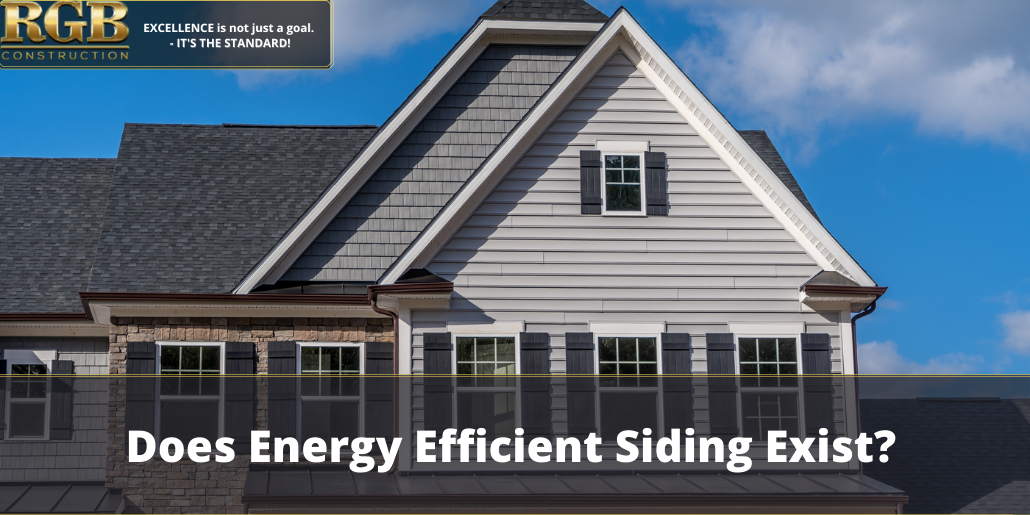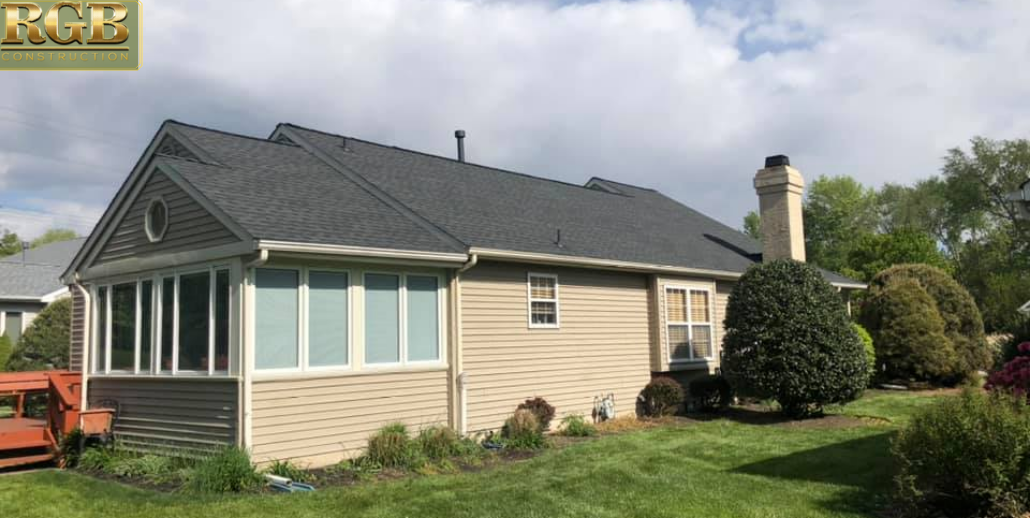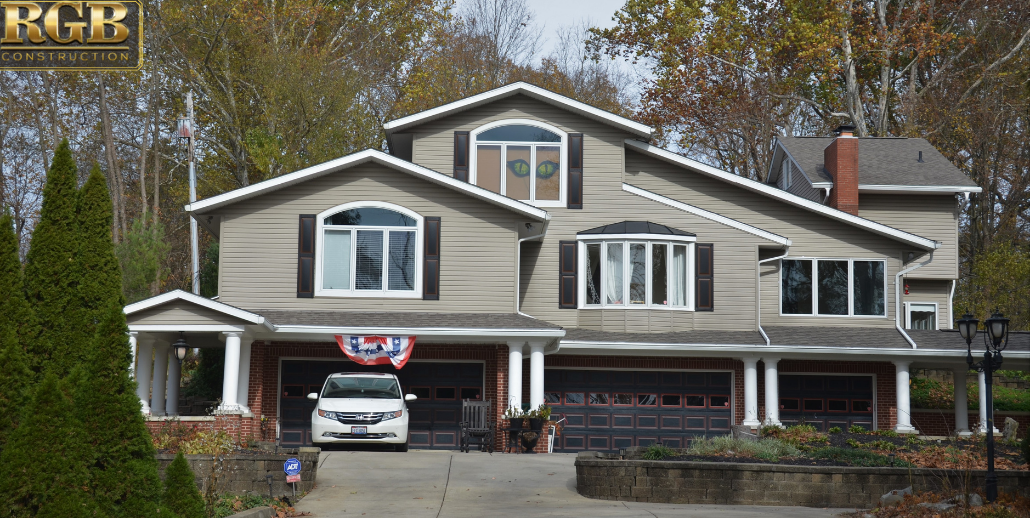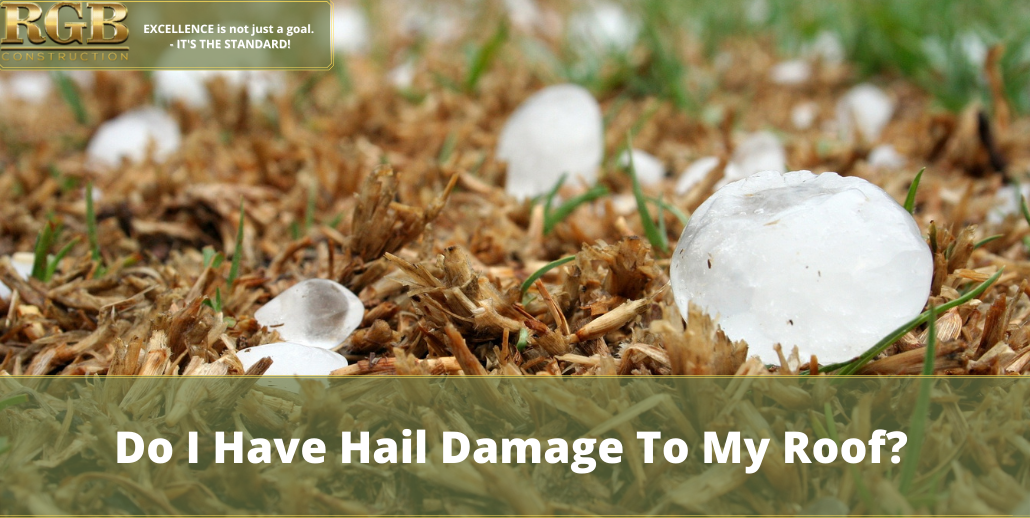Siding is an essential part of your home because it protects what the roof cannot. Siding should also help keep the temperature comfortable. If you are constantly running to the thermostat to adjust, perhaps your siding is not as energy efficient as it could be. More modern siding is more energy-efficient than ever before, and there are even products coming out designed to be even more environmentally conscious.
So, does energy-efficient siding exist? It sure does. Today, we’re going to go over some of the most energy-efficient siding options, so you can find the best kind for your home and budget.
What Does It Mean To Be Energy-Efficient?
To be energy efficient is to not waste energy needlessly when using electricity and finite resources. Energy efficiency and environmentally-friendly practices are closely related. The less energy you use in your house, the fewer carbon emissions there are overall.
For siding to be considered energy-efficient, it must insulate a house better than other brands. In turn, you need to use less energy to cool and heat your home throughout the year.
How do you know if the siding is energy efficient? The first thing to consider is the R-value. Poorly insulation siding is going to have a low R-value, sometimes as low as 0.11! You don’t want that. Energy-efficient siding is going to have additional features, like foam backing, to increase the R-value to around 0.40 or higher.
Advantages Of Energy Efficient Siding
Aside from saving the planet’s resources, what are some reasons why choosing energy-efficient siding is the way to go? Here are some advantages:
Insulation
The average home has walls made with wooden studs. Unfortunately, those studs contribute to higher energy bills, thanks to their poor insulation. Choosing energy-efficient siding with more insulation than average will nullify those wood studs.
Less Damage
Insulated or foam-backed siding may not be impregnable, but it does have more resilience than less efficient types. You will find that energy-efficient siding can hold up against high wind speeds, impacts, and weathering over time. Since the added insulation pads against sound as well, you won’t have to worry about hearing howling winds or noise from passing traffic either.
Siding Materials And Their Energy Efficiency
Here are some of the best options for energy efficiency siding:
Vinyl Siding
Known for its resilience in harsh weather, vinyl siding is a popular choice along the coastlines. Recently, manufacturers are giving vinyl siding a new appearance. You can now find vinyl that looks like slate,
wood, and stone but comes at a fraction of the price. If you want to increase the normal R-value of vinyl, partner it with some insulating foam.
Pros
- Cost-effective choice that can be retrofitted
- A multitude of style and color options available
- Recyclable
- Thermally resistant and energy efficient when paired with foam
Cons
- Noticeably damaged vinyl siding must be completely replaced
- Repainting vinyl may void warranties
- Short lifespan
Wood Siding
Cedar has long been used for siding, shakes, and shingles. With an R-value of 0.87 (or 0.81 if beveled), cedar is a wonderful and natural insulator. Since it is biodegradable, cedar is a sustainable choice. Treated cedar is fire-, water-, and weather-resistant. It will also withstand pests. When properly maintained, wood siding will last for many years and look aesthetically pleasing the whole time.
Pros
- Available in a variety of stains and paints
- Recyclable and biodegradable
- Highly energy-efficient
Cons
- One of the most expensive materials available
- Requires treatments and regular maintenance; otherwise, it is susceptible to warping, rotting, and termites
Fiber Cement Or Composite Siding
When wooden fibers, cement, and sand are mixed together, you get a composite material also known as fiber cement. This siding comes out thick enough to withstand impacts from hail and wind. It looks like wood when installed, but it requires far less maintenance. Although fiber cement has a lower R-value (about 0.37), it is fire and water-resistant and does well in a variety of regions.
Pros
- Affordable alternative to more expensive stone or wood
- Wood fibers retain high R-value
- Requires less maintenance than wood and can last up to 50 years
Cons
- Cement cannot be recycled
Steel And Aluminum Siding
Since aluminum and steel can be made seamless, it does an impeccable job at preventing leaks. Lately, aluminum and steel siding has gotten more and more stylish, and you can find a number of options that will upgrade the overall look of your home. It can also be paired with insulating foam to increase its energy efficiency, but metal is mostly recommended for hotter regions.
Pros
- Ideal for hotter climates where homes need to stay cooler throughout the year
- Can be paired with foam to increase insulation
- Recyclable
- Low maintenance and can last up to 50 years
Cons
- Expensive
- Does not retain heat
- Susceptible to fading and rusting
Stucco Siding
One reason people love stucco is its classic appearance. Stucco is moderately insulating by itself; at 2 inches thick has an R-value of 0.40. That puts it just behind non-insulated vinyl and aluminum. Stucco can also shield a house against pests, like termites, and fire. If you choose stucco, make sure you enlist the help of a professional contractor.
Pros
- Attractive exterior that is available in many colors and styles
- Resistant to pests and fire
- Will not require many repairs or repainting when properly maintained
Cons
- Can cost about as much as wood siding to install
- Requires technical installation that is easy to ruin, resulting in dry rot and water damage
- Must be mixed with epoxy or it will crack
Conclusion
When you want to improve your home’s energy efficiency, you should consider replacing the siding on your home. There are plenty of energy-efficient siding options out there. You simply have to look for the materials that do the best job. Once you have new siding, you can reduce your carbon footprint and the overall cost of utilities. Plus, you upgrade things like aesthetics and value.
Don’t forget that proper installation is important, too! Hire a professional siding contractor like RGB Construction. We can provide advice on which siding to choose, evaluations, quotes, or answer any questions you might have. Give us a call today at 856-264-9093.










